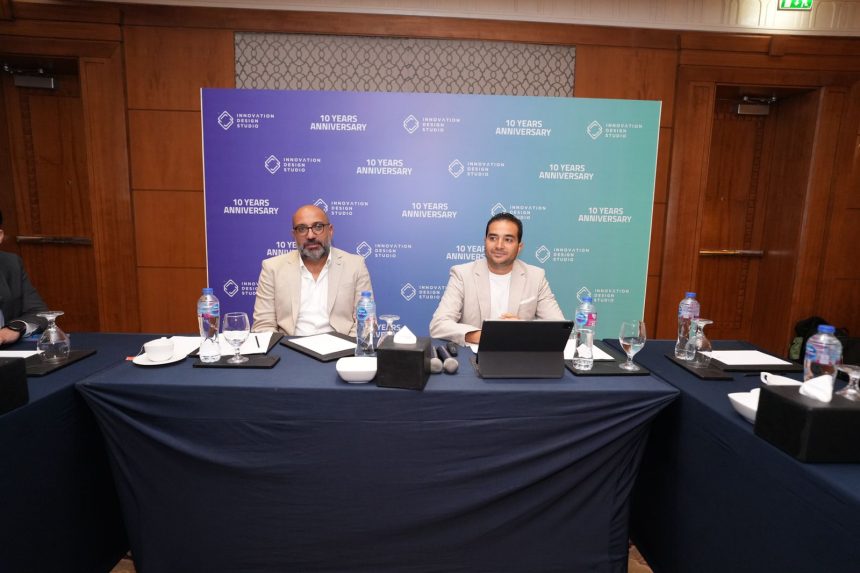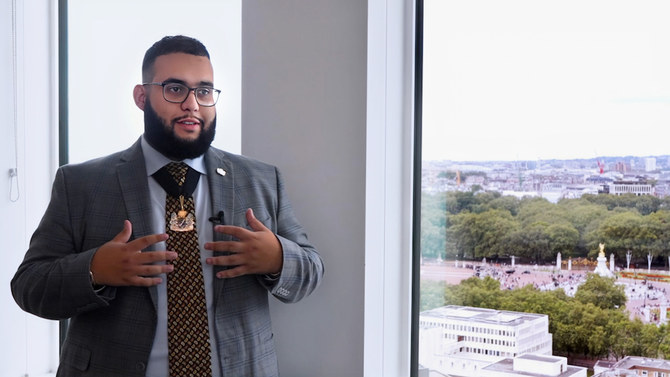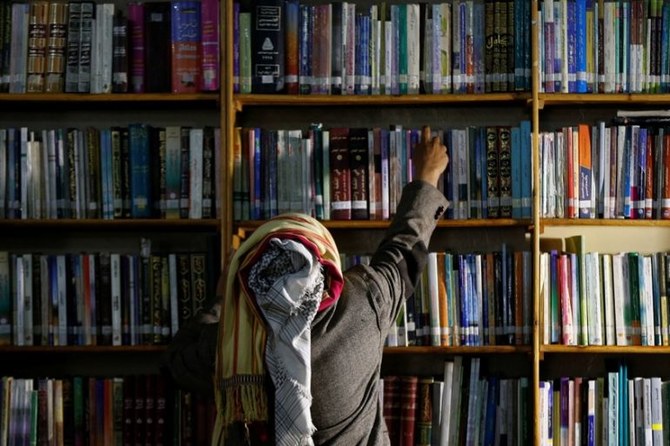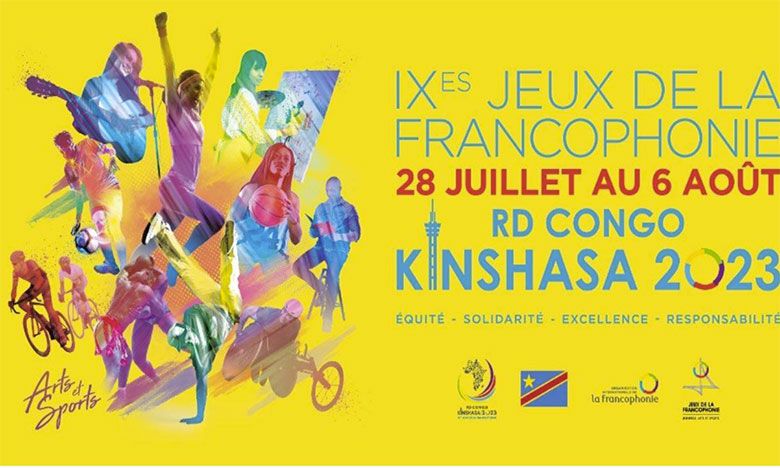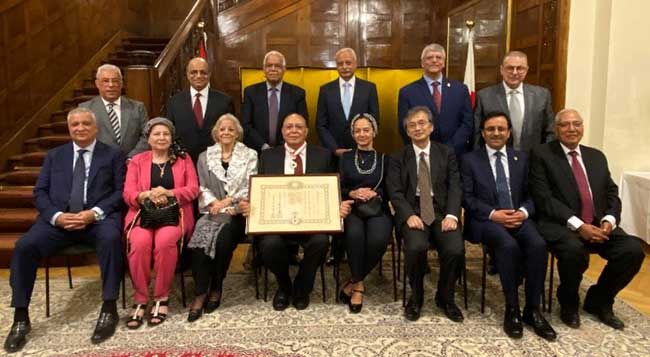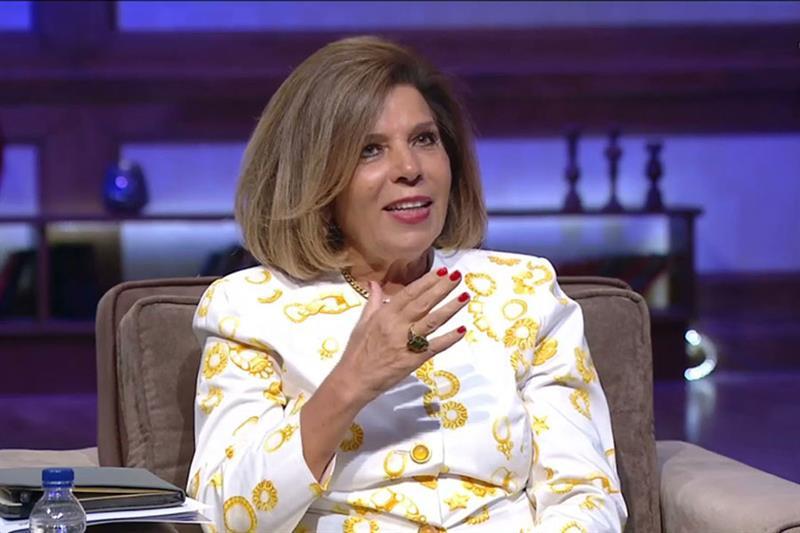.When you hear of Al-Andalus, you might think of Andalusia. And yet, from 711 to 1492, until the famous Fall of Granada, the Future Andalusia was only a small part of this vast Arab territory, whose influence can be seen everywhere in Spain. Let us take a tour.
Al-Andalus, a long series of powerful people
In the early 8th century, the Iberian Peninsula belonged to the Visigoth Empire, when the commanders of the Umayyad Caliphate (with a territory extending from the Arabian Peninsula to the Maghreb) set out to conquer the lands on the other side of the Mediterranean.
The Umayyad dynasty ruled in Al-Andalus (what would become Spain) for more than 300 years. It was suceeded by Taifas (independent kingdoms). The Abbasids, then the Almoravids, rose to power. In 1147, it was the Almohads who took over the empire. This proved to be a prosperous period, with great scholars, such as Averroes, a doctor, lawyer, and advisor to the Caliph. These scholars helped to make Al-Andalus a grand dominion. But the Christian reconquest gained ground. From 1238 to 1492, the Reconquista blazed on, and soon only the Emirate of Granada remained in southern Spain, the last vestige of the great Muslim empire.
From the north to the south of Spain, the Arab-Andalusian influence can be seen everywhere
One after the other, Cordoba, Seville and Granada became the capitals of the kingdom of Al-Andalus during the Middle Ages. Arab culture has permeated everything from traditional Andalusian music to the names of localities, and the Spanish language. But the most visible influence can of course be seen directly in the architecture of buildings and streets. Numerous vestiges, sometimes intact, sometimes remodelled, remain in the cities’ maze of streets, and this period of Spanish history has left prodigious monuments of Arab origin and fabulous examples of Islamic art. Many of these monuments bear a unique blend of cultural influences as they were renovated or repurposed over the centuries.
The most beautiful Arab monuments in Spain
The Arab Baths of Ronda, a magnificent ruin site
The hammam tradition was a cornerstone of Arab culture for centuries. From the 13th to the 15th century, several such baths were built in Spain. The baths of Ronda, in Andalusia, are one of the best examples, with their three magnificent barrel-vaulted rooms and visible heating and water circulation systems. The Guadalevín river, which often floods, has prevented these baths from being used, but excavations have been carried out, and now you can visit and admire some of the best-preserved Arab bathhouses in the country.

pix: P. Escudero / hemis.fr
Baños Árabes
C. Molino de Alarcón
29400 Ronda
Málaga
+34 951 15 42 97
turismoderonda.es
The Alhambra of Granada, an extraordinary castle
On the Sabika hill, opposite the Albaicín district, stands the Alhambra of Granada, a majestic conglomeration of several buildings built in the early 12th century. The grandeur of the last Nasrid rulers is at its peak. Not to mention the sublime, breathtaking view over the plain of Granada!

pix: KellyISP / Getty Images Plus
Alhambra de Granada
C. Real de la Alhambra
18009 Granada
+34 958 02 79 71
www.alhambra-patronato.es
The Mosque-Cathedral of Cordoba, from Islam to Christianity
Another Muslim building, the Cordoba mosque is a symbol of Arab influence at its most grandiose. From the 8th century to 29 June 1236, the building served as a mosque, before becoming a church again following the Reconquista. Representative of the art of the Umayyads of Cordoba, it is a monumental structure, and it covers over 1.5 hectares. The building is a splendid example of Islamic architecture: the “forest of columns” in the main hall – 1,300 marble, jasper and granite columns – highlights the gargantuan size of the place.

pix: kasto80 / Getty Images Plus
Mezquita-Catedral de Córdoba
C. Cardenal Herrero, 1
14003 Córdoba
+ 34 957 47 05 12
mezquita-catedraldecordoba.es
The Aljaferia Palace in Zaragoza, a seat of power
The Mudejar art of Aragon, in the north of Spain, has been declared part of UNESCO’s World Heritage, and the Aljaferia in Zaragoza is one of its most flamboyant masterpieces. When it was built in the second half of the 11th century, this palace clearly displayed the magnificence of the Taifa of Zaragoza. It served as a residence, a fortified enclosure and a barracks. It currently houses the Parliament of Aragon. The palace’s interior decoration is gorgeous, with a series of delicate, refined arches.

pix: kasto80 / Getty Images Plus
Palacio de la Aljafería
Calle de los Diputados
50003 Zaragoza
+34 976 28 96 83
www.turismodearagon.com
The Seville Giralda, a perfect example of mixed construction
The architectural marriage of the Giralda, the bell tower of the Cathedral of Our Lady of the See in Seville, is immediately evident. The lower parts were built in the 12th century, when the city was the capital of the Arab-Andalusian empire, under the rule of the Almohads. Four centuries later the upper floor was added, and the mosque’s minaret became a bell tower. It is now an unspoken rule that no building should be higher than this symbol of Seville.

pix: marinzolich / Getty Images Plus
Catedral de Santa María de la Sede de Sevilla – Giralda
Av. de la Constitución
41004 Sevilla
+34 902 09 96 92
www.catedraldesevilla.es
source/content: en-vols.com / ENVOLS (headline edited)
_____________
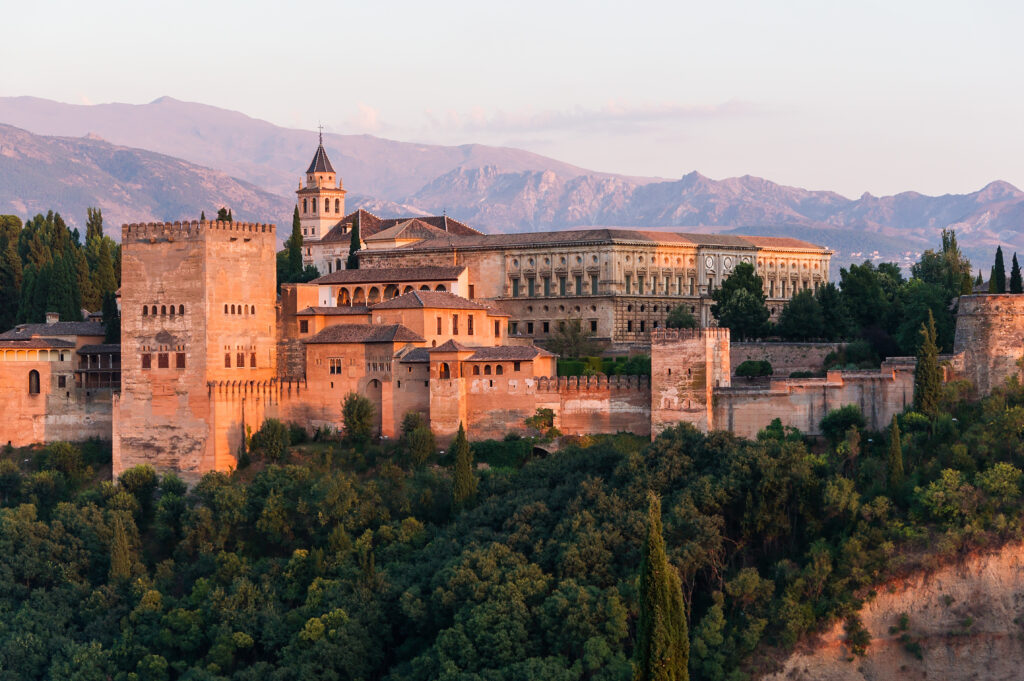
_________
SPAIN
